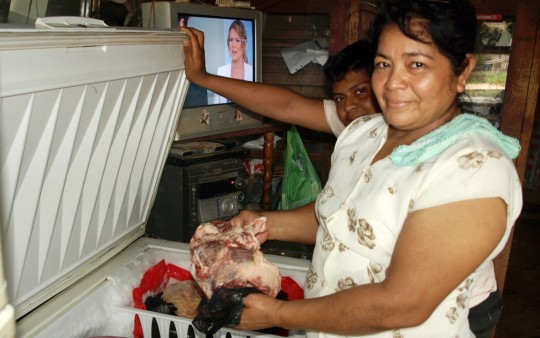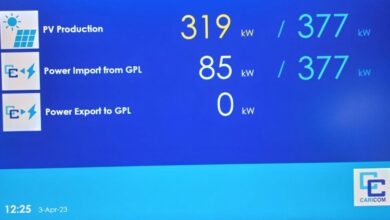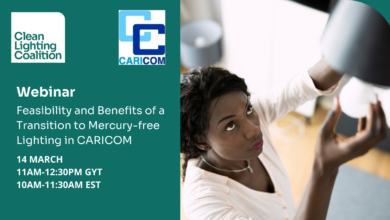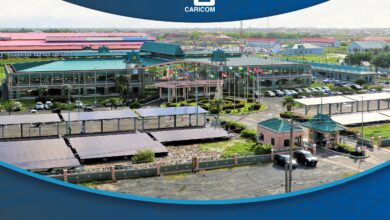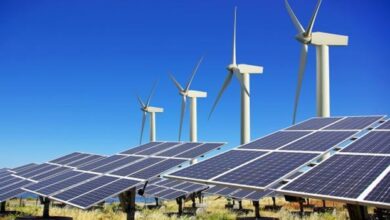Washington, 23 February 2015- The Inter-American Development Bank (IDB) the United Nations Development Programme (UNDP) and The Economic Commission for Latin America and the Caribbean (ECLAC) launched today in Washington a partnership to support the Sustainable Energy for All (SE4ALL) initiative in Latin America and the Caribbean, boosting access to energy and increasing the use of renewable energies and efficiency in the region, with specific goals by 2030.
“This new partnership increases our fire-power, meaning even greater support to policymakers and other stakeholders, and an even more effective catalyst for increased investment,” said Kandeh Yumkella, UN Under-Secretary-General and the Special Representative of the Secretary-General for Sustainable Energy for All and CEO of the Sustainable Energy for All Initiative.
The three organizations also agreed to increase access to finance for sustainable energy initiatives and to create a Regional Sustainable Energy for All Hub for the Americas, hosted by IDB.
Specific objectives include: 1) providing resources that support policy and institutional reforms and regulatory frameworks that encourage the development of sustainable energy production and use 2) the comprehensive mapping of regional energy programs run by regional stakeholders and 3) determining indicators and data that will be collected from all countries.
“Now is the time for governments and private sector in the region to invest in sustainable energy alternatives—not only to encourage growth while reducing emissions, but also to ensure access to clean energy to around 24 million people who still live in the dark,” said UNDP Deputy Director for Latin America and the Caribbean Susan McDade.
Demand for electricity in the region is expected to double by 2030. Moreover, although the region has a clean electricity matrix, with nearly 60 percent generated from hydroelectric resources, the share of fossil fuel-based generation has increased substantially in the past 10 years, mainly from natural gas.
For the Caribbean region in particular, reliance on imported fuels challenges balance of payments stability and increases the vulnerability of key ecosystems that underpin important productive sectors, including tourism.
“We have a chance to do something unique in the energy sector in Latin America and the Caribbean, and our advances can improve the daily lives of citizens,” Hans Schulz, IDB Vice President.
Investing in access to energy also means lighting for schools, functioning health clinics, pumps for water and sanitation, cleaner indoor air, faster food processing and more income-generating opportunities, according to UNDP’s action4energy initiative.
Antonio Prado, Deputy Executive Secretary of ECLAC, pointed out that, “The access to modern energy is part of the necessary action to deal with poverty in its multi-dimensional factors: ECLAC has provided technical assistance in this area to 21 countries of the region, has produced over 30 publications and organized over 20 regional conferences on topics related to sustainable energy.”
UNDP and sustainable energy – UNDP works with countries in Latin America and the Caribbean to boost access to sustainable energy and reduce fossil fuel dependency.
In Nicaragua, for example, nearly 50,000 people from eight rural communities gained access to electricity following the inauguration of a new 300 kilowatt micro-hydropower plant in 2012.
This joint partnership between national and local governments, UNDP and the Swiss and Norwegian governments, has been improving lives and transforming the energy sector.
In addition to spurring a new legislation to promote electricity generation based on renewable resources, micro enterprises have been emerging and jobs have been created—for both Nicaraguan men and women.
About SE4ALL – Sustainable Energy for All is a multi-stakeholder partnership between governments, private sector and civil society that was launched in 2011 by the UN Secretary-General, Ban Ki-moon. The three goals of the initiative are to provide universal access to modern energy, to double the level of renewable energy use worldwide, and to double the amount of energy efficiency work worldwide, all by the year 2030.


